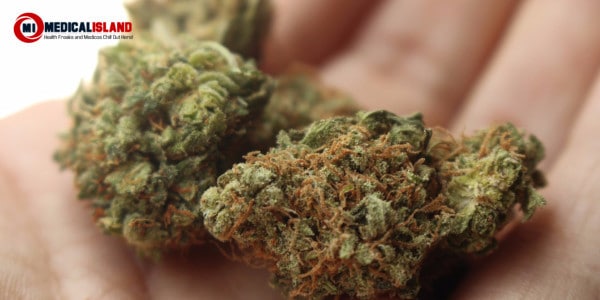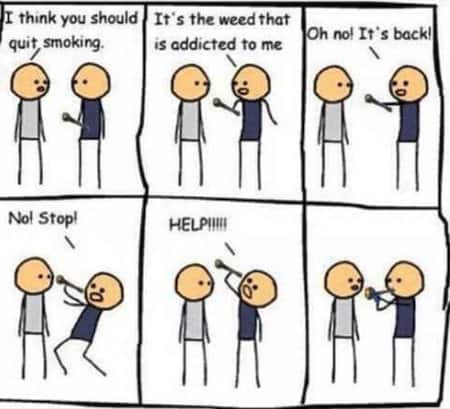With the legal and cultural attitudes regarding marijuana continuing to change, more and more parents are struggling to help their adolescents and teens navigate the facts and myths surrounding marijuana use.
In January of 2020, marijuana will be legal in some form in all states except Idaho, South Dakota and Nebraska. In fact, in 11 states, it will be fully legal. Although purchase may be restricted to those over 21 years of age, and use under the age of 18 is illegal, the reality is that, just like with alcohol, many teens will be exposed to this drug.

Alzein Pediatrics is here to help you get a clear understanding of today’s marijuana, the risks to your still-growing children’s health, and to help you start an honest and open conversation with your kids.
Marijuana Use is On The Rise
Studies show that more and more high school students are using marijuana, with 38% of high school students have used marijuana at least once. It’s vitally important that parents educate themselves about marijuana and related products such as cannabis oil and edibles to help their children understand the effect of this potent drug.
Despite common belief, marijuana is addictive. While many people consider marijuana less dangerous than alcohol, it’s important to understand that the marijuana being sold and consumed today has little in common with the marijuana of previous generations. Marijuana has evolved over the decades and its potency is higher than ever before.
In the past, the marijuana that was available was a mix of leaves, stems, and flowers. Back then, Baby Boomers and Gen Xers were consuming parts of the plant that were very low in tetrahydrocannabinol (THC), the substance that produces a “high”.
Today, dispensaries sell marijuana that contains more of the feminized flower (Sinsemilla) which has been bred and processed to contain two to three times more THC which carries real risks, especially to the developing brains, bodies, and health of our teens.
Perhaps most importantly, your child’s brain isn’t fully developed until about the age of 26, which means that any mind-altering substance they take will have a long-term effect, essentially rewiring the brain. The earlier a child begins using marijuana, the greater the damage they will do.
Mental Side Effects
Studies show marijuana use causes:
- Difficulty in concentration and problem solving
- Problems with learning and memory
- Lower intelligence and poor academic performance
- Damaged executive functioning leading to an increase in risky behaviors including using other drugs and alcohol and dangerous sexual behaviors
- Increased risk of anxiety, depression, suicide and psychosis such as schizophrenia
- Impaired physical ability, balance, and coordination
Marijuana use in young people will have negative effects on attention and learning which can result in lower grades at school. This is particularly true in teens and adolescents who use it regularly.
According to the National Institute on Drug Abuse, “marijuana has negative effects on attention, motivation, memory, and learning,” and these effects linger in regular users even after the immediate effects have worn off.
This means that when your child smokes marijuana daily, they will be “functioning at a reduced intellectual level most or all of the time.” Marijuana use also affects energy, motivation, attention span, and has been linked to memory loss.
The forgetful stoner isn’t just a character in a comedy sketch; studies show that teens who use marijuana heavily lose an average of 8 points on their IQ by mid-adulthood.
Marijuana use also makes it harder to identify depression and mental illness in young people resulting in the delay of treatment.
Although there is no evidence that marijuana use will cause mental illness, evidence has linked to the worsening of depression anxiety and other mental illnesses. The mental and physical impact of marijuana use is real.
Physical Side Effects

Physical damage to your child’s body can include:
- Coughing, wheezing and respiratory problems
- Increased risk of lung cancer
- Increased heart rate, increasing the risk of heart attack
About 10% of marijuana users become physically addicted, setting them up for a lifetime of mental health problems, financial insecurity, and social isolation. Marijuana is not regulated by the FDA for purity, safety, ingredients or strength. While it may be “natural”, that doesn’t mean it’s safe.
Overdosing on marijuana is also a real possibility, especially for young people. This is particularly true with marijuana edibles such as brownies, candies, and other foods. It takes much longer to feel the effects ofedibles, about two to three hours when compared to an almost immediate effect of smoking marijuana.
When a teen takes a small square of a “brownie” and doesn’t feel the effect right away, they typically take another piece and another piece, which can result in hospitalization due to the large amounts consumed.
Be mindful of your child’s behavior and don’t just rely on smelling the marijuana odor. Remember the drug can be vaped, eaten in baked goods, drunk in a beverage or absorbed through the skin using oils.
How to Spot Marijuana Use
Signs of marijuana use include:
- Increased irritability, anger or mood swings
- Loss of interest and motivation for schoolwork, hobbies, athletics, and clubs
- Associating with peers whom you suspect or know are using marijuana
- Acting out of character, laughter, and silliness
- Forgetting what just happened a moment ago
- Carrying lighters, plastic bags, vape pens
- Red eyes
- Change in appetite and increased snacking
As a parent, your input is vital in conversations about marijuana with your children. When kids don’t get the information they need from their parents, they’ll seek the information elsewhere, and from sources may be completely unreliable. When kids are not properly informed, they are at greater risk of engaging in unsafe behaviors.
Parents who are educated about drug use can provide their kids with simple, clear facts and eliminate any misconceptions. Remember, you are their role model – no matter how much they roll their eyes – and your views about drug use will strongly influence the choices your children make.
Talk to Your Child
Ideally, conversations with your children about drugs and alcohol should start very early, when they are in elementary school. Start by asking what your teen or child has heard and thinks about marijuana. Give your teen time to answer completely, without interruption or judgment.
Explain the facts about marijuana’s effect on the body and brain, and the risks people take when they use any type of mind-altering substance. Stress the timeline of brain development and how marijuana use now will negatively and powerfully impact their future.
If you have your own experiences with drugs, understand that, with the exponentially strengthened potency of today’s marijuana, the effect you experienced would be dramatically different for your child. Do not minimize the dangers of today’s marijuana.
Talking honestly with your children as soon as possible, especially with the upcoming legalization, is vital to healthy brain development and mental health.
Conclusion

Even though marijuana has a reputation for being safe and it is or will be legal in your state, there are long-term side effects with its use and it is important to help your children and help deter them from using it in the first place. Knowing the risks and talking to your child will help you to navigate this issue.
